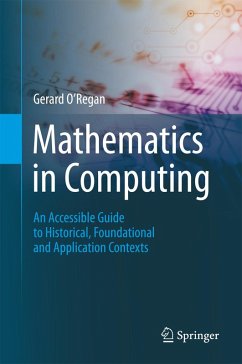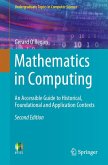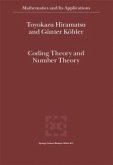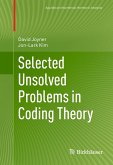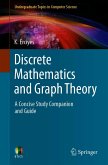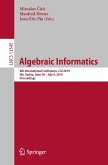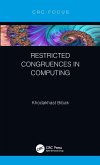From the earliest examples of computation to the digital devices that are ubiquitous in modern society, the application of mathematics to computing has underpinned the technology that has built our world.
This clearly written and enlightening textbook/reference provides a concise, introductory guide to the key mathematical concepts and techniques used by computer scientists. Spanning a wide range of topics - from number theory to software engineering - the book demonstrates the practical computing applications behind seemingly abstract ideas. The work of important figures such as Alan Turing and Robert Floyd are also discussed, highlighting how the theory has been informed by historical developments.
Topics and features:
This engaging and easy-to-understand book will appeal to students of computer science wishing for an overview of the mathematics used in computing, and to mathematicians curious about how their subject is applied in the field of computer science. The book will also capture the interest of the motivated general reader.
This clearly written and enlightening textbook/reference provides a concise, introductory guide to the key mathematical concepts and techniques used by computer scientists. Spanning a wide range of topics - from number theory to software engineering - the book demonstrates the practical computing applications behind seemingly abstract ideas. The work of important figures such as Alan Turing and Robert Floyd are also discussed, highlighting how the theory has been informed by historical developments.
Topics and features:
- Ideal for self-study, offering many pedagogical features such as chapter-opening key topics, chapter introductions and summaries, review questions, and a glossary
- Places our current state of knowledge within the context of the contributions made by early civilizations, such as the ancient Babylonians, Egyptians and Greeks
- Examines the building blocks of mathematics, including sets, relations and functions
- Presents an introduction to logic, formal methods and software engineering
- Explains the fundamentals of number theory, and its application in cryptography
- Describes the basics of coding theory, language theory, and graph theory
- Discusses the concept of computability and decideability
- Includes concise coverage of calculus, probability and statistics, matrices, complex numbers and quaternions
This engaging and easy-to-understand book will appeal to students of computer science wishing for an overview of the mathematics used in computing, and to mathematicians curious about how their subject is applied in the field of computer science. The book will also capture the interest of the motivated general reader.
Dieser Download kann aus rechtlichen Gründen nur mit Rechnungsadresse in A, B, BG, CY, CZ, D, DK, EW, E, FIN, F, GR, HR, H, IRL, I, LT, L, LR, M, NL, PL, P, R, S, SLO, SK ausgeliefert werden.
From the reviews:
"This book provides a mathematical context for computing. ... Each chapter concludes with a summary and a series of review questions that reinforce the concepts presented. This is all very readable and self-contained, making the book an excellent resource for most academic libraries. Summing Up: Highly recommended. All undergraduate students and informed general audiences." (D. Z. Spicer, Choice, Vol. 50 (11), July, 2013)
"This book provides a mathematical context for computing. ... Each chapter concludes with a summary and a series of review questions that reinforce the concepts presented. This is all very readable and self-contained, making the book an excellent resource for most academic libraries. Summing Up: Highly recommended. All undergraduate students and informed general audiences." (D. Z. Spicer, Choice, Vol. 50 (11), July, 2013)

